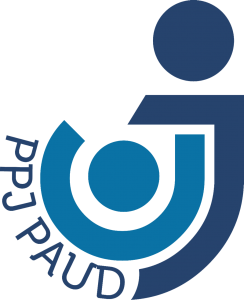The role of fatherhood towards early childhood in Javanese culture: Ethnoparenting study in Wonolelo
DOI:
https://doi.org/10.26555/jecce.v7i1.10331Keywords:
fatherhood, parenting role, Javanese culture, early childhoodAbstract
The aim of this research is to explore the role of fathers in caring for early childhood children in Javanese culture. The phenomenon of fatherlessness in parenting is increasingly widespread in Indonesia. The Javanese tribe, one of the largest ethnic groups in Indonesia, was the sample in this research. The research method used is qualitative research with an ethnoparenting approach. The research locus was determined based on the subject's domicile, which was the Wonolelo area, Pleret, Bantul, Yogyakarta. The snowball technique was used as a method in selecting respondents. Involving 14 families as participants, the data was collecting through direct observation and interviews. Data were analyzed using thematic analysis. The research results show that the role of the father in the Javanese tribe of Wonolelo Village is still the same as the role of most fathers in Indonesia, namely as a decision maker and as a leader, the economic provider, where the family still adheres to a patriarchal culture. Fathers do not always directly involve in parenting at children's daily life. Fathers play more of a role as disciplinarians, role models in carrying out religious teachings, cultural and social traditions. The mother dominates the parenting role at home. It is essential for fathers to increase their parenting role by interacting directly to meet children's psychological and physiological needs.
Downloads
Published
How to Cite
Issue
Section
License
Copyright (c) 2024 Riana Mashar, Prima Suci Rohmadheny, Iyan Sofyan, Irfan Ansori, Fatimah Rahmah, Siti Huzaimah, Marina Tri N Gunawan

This work is licensed under a Creative Commons Attribution-ShareAlike 4.0 International License.
Authors who publish with this journal agree to the following terms:
- Authors retain copyright and grant the journal right of first publication with the work simultaneously licensed under a Creative Commons Attribution-ShareAlike 4.0 International License that allows others to share the work with an acknowledgement of the works authorship and initial publication in this journal.
- Authors are able to enter into separate, additional contractual arrangements for the non-exclusive distribution of the journals published version of the work (e.g., post it to an institutional repository or publish it in a book), with an acknowledgement of its initial publication in this journal.
- Authors are permitted and encouraged to post their work online (e.g., in institutional repositories or on their website) prior to and during the submission process, as it can lead to productive exchanges, as well as earlier and greater citation of published work (See The Effect of Open Access).














